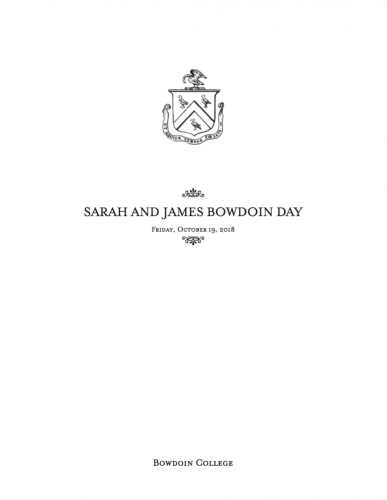Sarah and James Bowdoin Day 2018
By Tom Porter
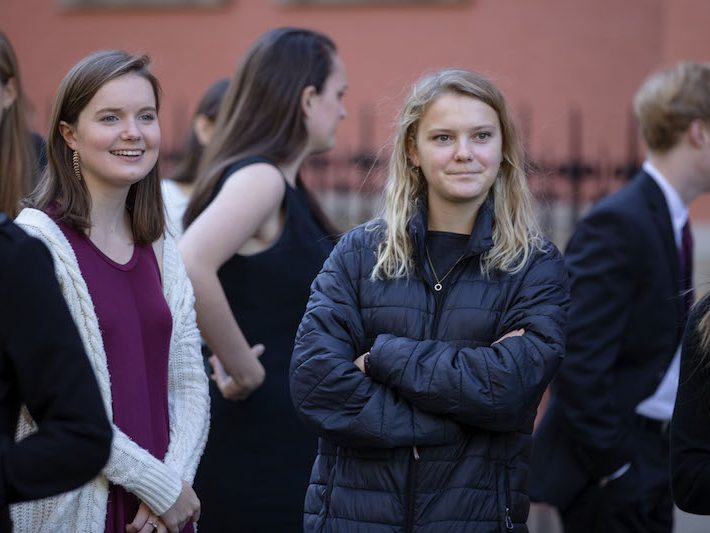





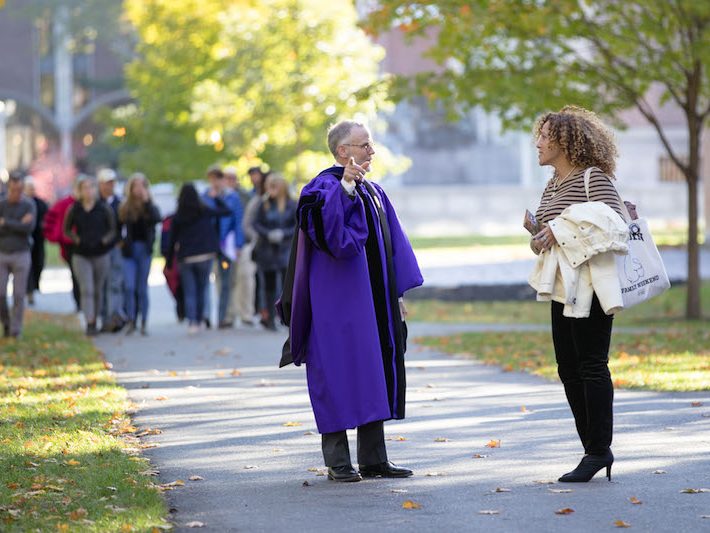


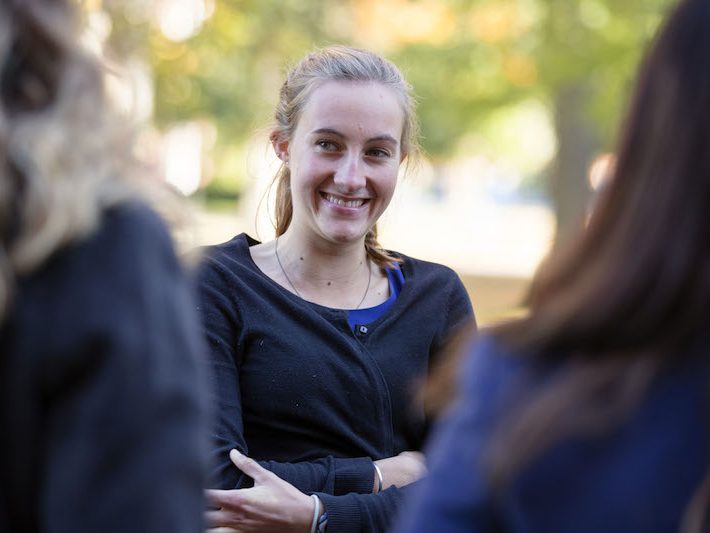



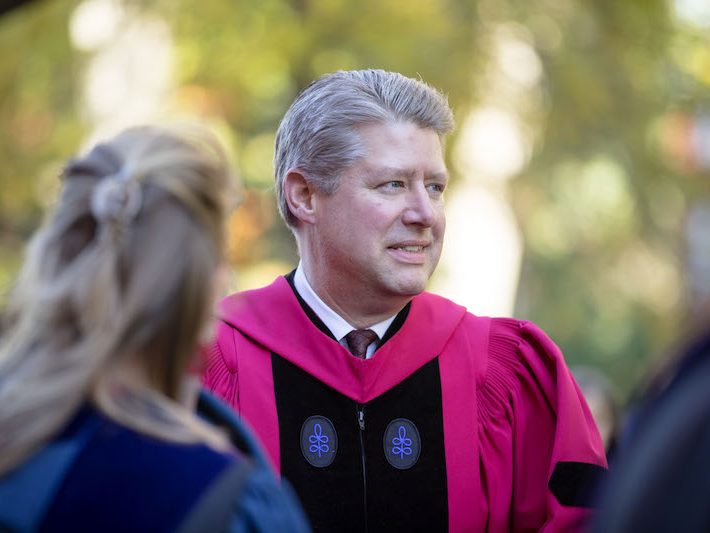
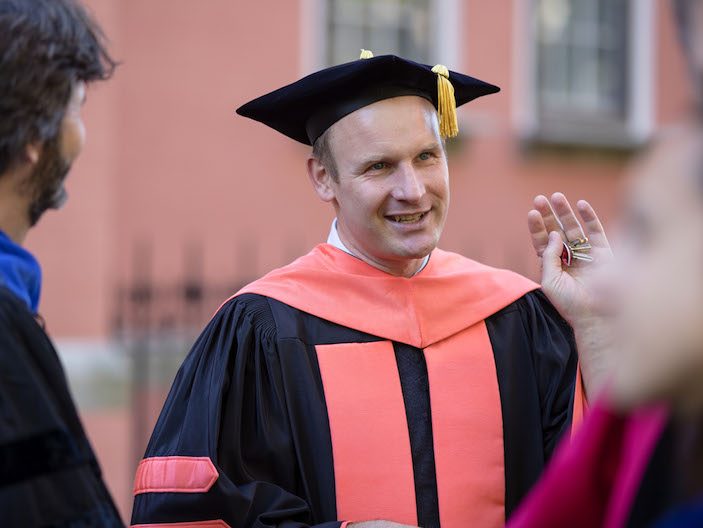
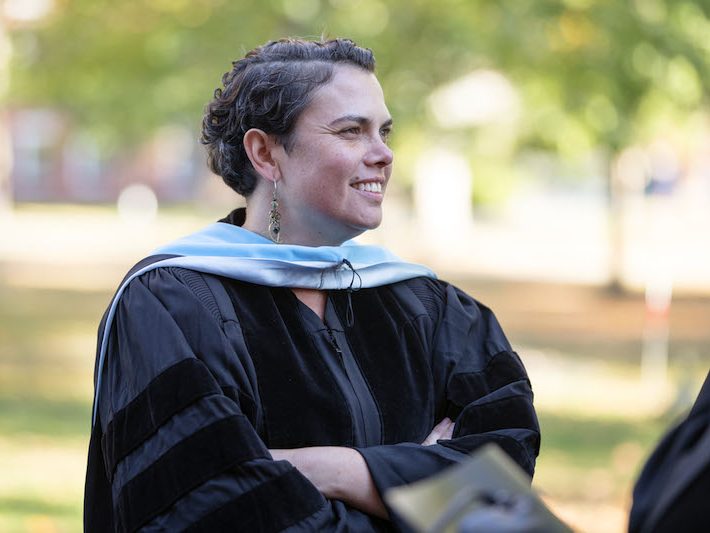









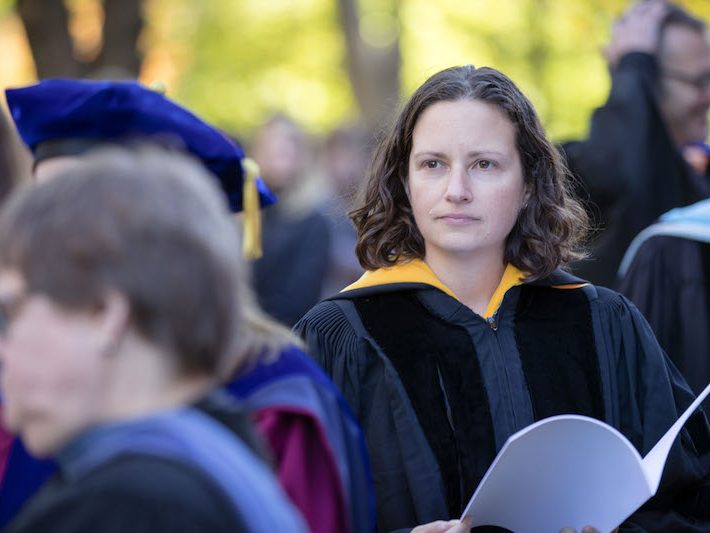

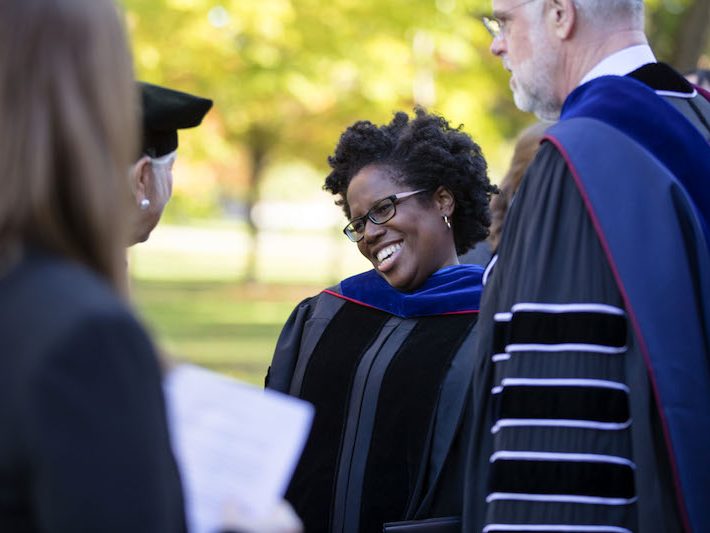


Photos by Andrew Estey
Bowdoin celebrated academic excellence at the College’s annual Sarah and James Bowdoin Day Friday, October 19, 2018. The ceremony was held in Pickard Theater, Memorial Hall.
Sarah and James Bowdoin scholarships are awarded each fall on the basis of work completed the previous academic year. They are given to the top 20 percent of students who have the highest grade point average.
Each scholar who earned a GPA of 4.0 also receives a Book Award, which bears a replica of the early College bookplate found on books in Hawthorne-Longfellow Library’s James Bowdoin Collection. In this year’s ceremony, thirty-five Sarah and James Bowdoin scholars received book awards.
President Clayton Rose, in his welcome address, reminded the audience how Bowdoin places a deep premium on intellectual excellence. “It is at the center of our mission, and we value the hard work and achievement that drives that,” he said.
“The outstanding level of achievement that’s demonstrated by our students requires intense focus,
The annual fall ceremony includes two addresses, one delivered by a highly recognized practitioner in one of the liberal arts disciplines—from Bowdoin or elsewhere—and a student address delivered by an outstanding Bowdoin student.
This year’s guest speaker was Assistant Professor of Government
“Whether it’s watching a horror movie, shopping for clothes or just hanging out with friends, I’ve learned to apply my liberal arts studies to everyday life,” said Dupre.
Her liberal arts education, she explained, has given her “the tools to reexamine everyday experiences and uncover complexity that is hiding in plain sight.”
An economics major, Dupre said after her first few classes, she “could no longer walk into a store without reflecting on the market forces of supply and demand at work around me. I would glance at a sweatshirt and find myself considering its price in terms of marginal utility and profit maximization.”
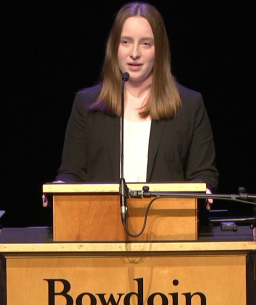
Dupre also took a class in cinema studies (2264, Film Genres in American Cinema) because she “thought it would be interesting to learn about a subject that’s outside of my core curriculum.”
The course gave her an unexpected appreciation for horror movies, a genre she had previously dismissed as being little more than “cheap thrills designed to entice bored teenagers.” The course, she explained, was an eye-opening experience.
“The films that I assumed were nothing more than shallow teenager flicks are actually fascinating pieces of cinema that have thematic depth and incorporate elements of psychology and sociology in unexpected ways.”
She encouraged her fellow students to think about taking classes they might not typically consider. “So take a biology class and learn how trillions of individual cells make up your body. Take a music class and learn to hear the harmonic intervals in everyday songs,” she urged.
“Take a computer science class and learn how algorithms power some of your favorite apps. And, if you’re not too frightened, you can even take a cinema Ssudies class and learn how subliminal images are used to scare you in The Shining. Whatever classes you take,” she said, “learn to discover the extraordinary in the ordinary."
Professor Laird’s address was called Started from the Bottom Now I’m Here: Life at the Intersection. In it, she described her background as a black American female, growing up in a poor neighborhood but going to school in a nearby, predominantly white community. The experience, she said, brought into sharp focus the difficulties faced growing up as an African American female.
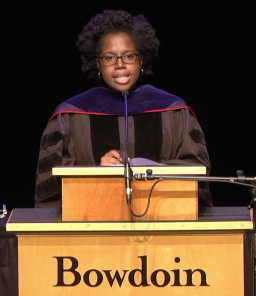
“As low-income black girls, many of my neighbors were dealing with constrained resources because they were disproportionately in homes with single-mothers with limited education,” she said.
“Some were the children of teenage mothers that had to sacrifice numerous social and economic opportunities to raise their kids. They were just making it on jobs that were significantly underpaid and without the dual-income that was much more common among my white suburban friends.”
Apart from socioeconomic challenges, said Laird, black women also face inequalities when it comes to health care and pregnancy, pointing to research that shows black women are 49 percent more likely to deliver prematurely, while “black infants are twice as likely to die as babies relative to their white peers….The risk during pregnancies starts early in life for black women,” she explained, “due to immense and unique inequalities, which means that, from a public health and public policy perspective, the medical field should be approaching the care for black women with greater attention to the potential challenges.”
The Almon Goodwin Prize was awarded to seniors Sierra Elizabeth Soghikian and Yijie Sun. This award is presented to one or more members of Phi Beta Kappa chosen by a vote of the Board of Trustees of the College.
Other Phi Beta Kappa members from the class of 2019 are:
Evelyn Rose Victoria Beliveau
Ivy Stella Elgarten
Susannah Claire Lawhorn
Brandon Scott Morande
Hannah Eve Pucker
Sophie Anne Sadovnikoff
Daniel Walter Viellieu
Evan Alden Walters
Derek Jonathan Yau
Victoria Estelle Yu
Phoebe Bourget Zipper
For the ceremony’s processional, pianist George Lopez, Bowdoin’s Beckwith Artist in Residence, performed an
Bowdoin began recognizing James Bowdoin scholars in 1941 to honor undergraduates who distinguish themselves by excellence in scholarship and to commemorate the Honorable James Bowdoin III (1752-1811), the College’s first patron. James Bowdoin III–who asked that the institution
By faculty vote in 1997, this commemorative day and scholarly distinction were changed to recognize both Sarah and James Bowdoin, who were married from 1780 until James’s death in 1811. Like her husband, Sarah Bowdoin gave many gifts to the College, including most of the Bowdoin family portraits which were bequeathed to Bowdoin College upon her death.
